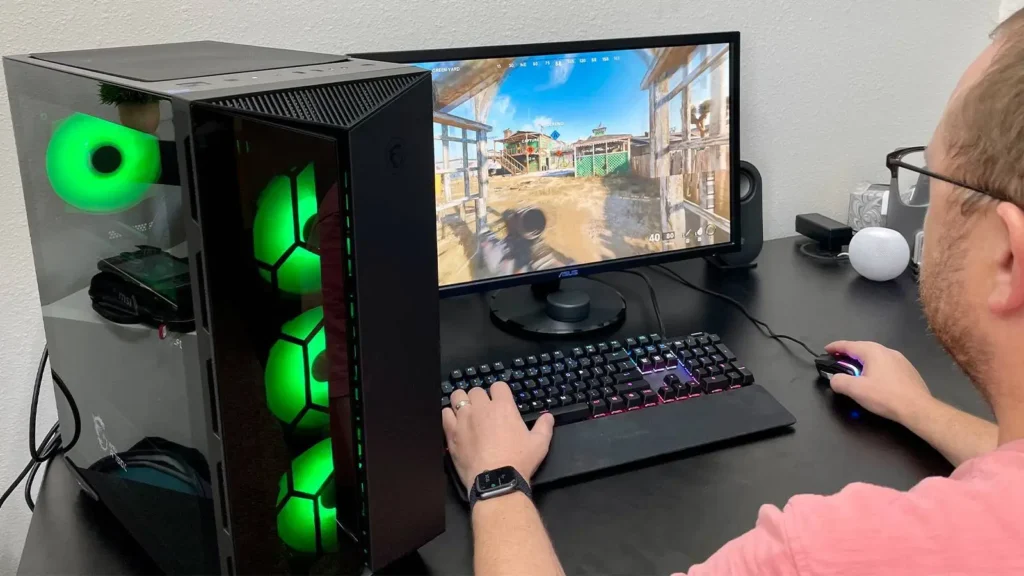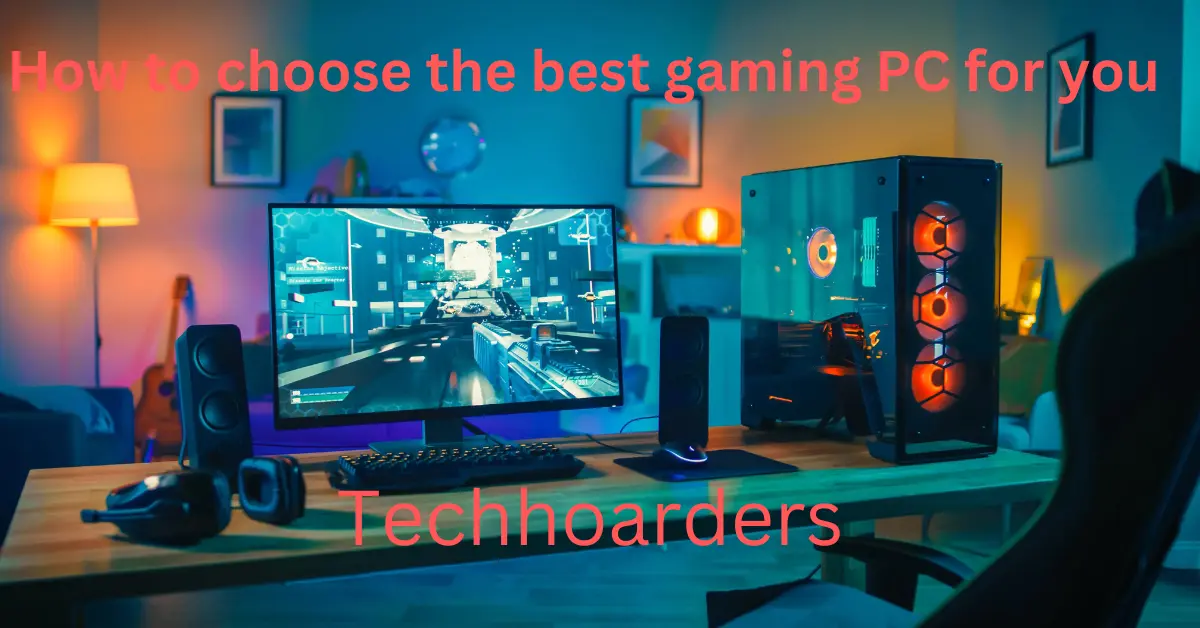Gaming PC or Personal Computers are so many different types of machines that they require almost a guide to themselves. Technically inclined people can write entire books on what makes each manufacturer unique and how to properly configure their PC. However, for the casual gamer who just wants an all-purpose machine that can do everything from basic internet browsing and watching Netflix to playing the latest games in reasonable settings, this Beginner’s Guide will help simplify things. The article below focuses mainly on modern/recent machines and games – not ancient computers and operating systems – as we will be using Windows 8.1 as our OS (Operating System) for ease of use and compatibility with most mainstream titles released today.
Choosing the Right Gaming PC
As with buying a new phone, there are some things to consider when upgrading your computer’s hardware. Of course, you can always buy the most expensive high-performance parts on the market but chances are they won’t be optimized for one another and you’ll probably have to spend even more money on an aftermarket CPU (Central Processing Unit) cooling system. If you’re not sure what all of these components do, here is a quick rundown:
CPU
The Central Processing Unit, or CPU, is the brain of the computer. How powerful a PC you can build depends entirely on how much money you put into your CPU. In an ideal world, everyone would want a multi-core hyperthreaded Intel i7 processor but unfortunately, most budgets won’t allow that. Getting multiple lower-end CPUs will yield more power than a single high-end one though which is why I recommend having at least two processors.
If you’re serious about building a PC and playing games then an AMD FX 8120 processor is my recommended choice for a budget CPU as it’s only $100 and provides eight cores with decent overclocking potential. If you already have a decent graphics card but need to upgrade your processor then an FX 6300 or a Core i5 would be two good choices.
If you have a bit more money to spend on your CPU then the Intel Core i5 4690k is my top choice of processor for gaming. It’s not much more costly than AMD processors yet provides significantly faster performance in both single and multi-threaded applications. A motherboard that supports it will also be more expensive so if your budget doesn’t stretch that far then going with an AMD processor instead is a better option.
Motherboard:
The motherboard is where all of your components connect to and dictates what types of RAM, graphics card, and CPU you can use on your computer. While choosing which peripherals (mouse, keyboard, etc.) you want to use is a personal preference the motherboard isn’t. There’s no point in spending a lot of money on your graphics card if your motherboard won’t support it or having numerous RAM slots filled with 16GB sticks when you only have two available.
A decent mid-range gaming PC board from Asus, MSI, Gigabyte, etc. is what I recommend if you want to take a balanced approach and balance cost with capability. Don’t bother going for an expensive one as that will be a waste of money unless you’re planning to overclock your processor and/or multiple graphics cards at once. If you’re going AMD then XFX makes some great boards but there are many other manufacturers out there so shop around for whatever tickles your fancy. The important thing is to make sure it has the features you want and will fit your other components!

Memory:
If there is a difference between 8GB of RAM and 16GB of RAM then I’m not seeing it! Unless you’re doing a lot of video editing or some other memory-intensive task then save yourself money and go with only 8Gigs. You can always upgrade later down the track if necessary.
The only real thing to look out for when choosing RAM is speed as this will affect how well games run. Having cheap as chips 1.5v 1600MHz sticks from eBay may sound like a good idea at first but they won’t perform anywhere near as well as the G-Skill Sniper series which are slightly more expensive but better quality. Make sure if you’re buying 8GB sticks that they are clocked at least 1600MHz.
Graphics Card:
There is an endless debate over which graphics card is better – AMD or Nvidia. There are some good arguments for both sides but the answer is simple if you ask me – get an Nvidia card. Generally speaking, Nvidia cards perform 5-10% better than their equivalent AMD counterparts so it’s not worth wasting your money on something slower just because of brand loyalty. Especially considering there isn’t much of a price difference between the two anyway! I would recommend either choosing a 770 or 760 series graphics card unless you have a larger budget than 780Ti or R9 290X are great choices too. If you want to save money then going with a previous generation graphics card such as the 660Ti is also an option.
Hard Drive:
If you’re reading this guide I assume you already have a copy of Windows 7 or 8 and one of those alone takes up over half the space on your hard drive without even factoring in any games! You can buy a cheap, used copy or find a deal with an OEM license and reuse that but unless you already own one then spending money on extra storage for games isn’t going to get you very far.
As far as what type of hard drive to get it depends on how many games you plan to store. If it’s only a couple then buying one 1TB HDD will be enough but if not then two 500GB HDDs in a RAID 0 setup will give you the most bang for your buck. I would recommend WD or Seagate as they are reliable and won’t let you down but if you have a friend with some spare parts lying around then putting them together is a fun project!
Operating System:
I would recommend getting Windows 7 or 8.1 but again it really depends on your budget and what you already have. I use Linux Mint which is great for gaming PC although if you want to go down the Linux route then Ubuntu is probably a better choice.
Mouse & Keyboard:
You can get any mouse or keyboard that tickles your fancy, just make sure they are wired ones because wireless mice will kill your FPS in games due to the lag inherent with that technology! There’s no need to be spending money on something like a Corsair Gaming Mouse when there are much cheaper alternatives available. As far as keyboards go Logitech G710+ Mechanical Keyboard is what I use but there are many other cheap options out there too
